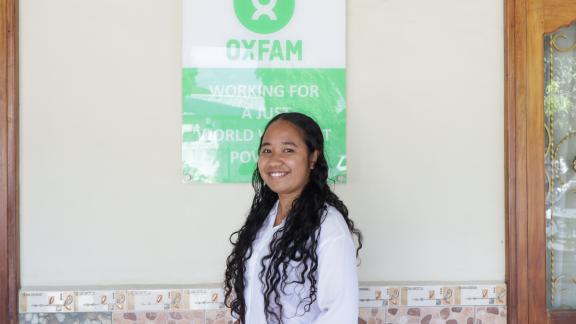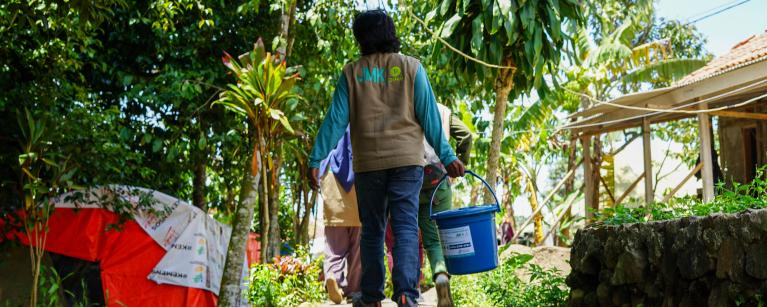“I remember the risky boat ride we took just to reach Fuga Island in Aparri, Cagayan, or the Indigenous peoples community in Umiray, General Nakar in Quezon province where we had to trek through forests and mountains for 12 hours just to reach them.”
In the heart of Asia, a region where cultures and landscapes intersect, humanitarian challenges manifest in diverse and complex ways.
The growing dangers of climate change are becoming increasingly evident in Asia, where 79 hydro-meteorological disasters were reported in 2023 alone (according to the Emergency Events Database). Over 80% of these events were related to floods and storms, resulting in more than 2,000 fatalities and directly affecting 9 million people. The rise in extreme heat further complicates the situation, though heat-related deaths are frequently underreported.
In light of this, it is clear that humanitarian work is crucial in supporting communities that, though least responsible for climate change, are most severely affected by its impacts.
As we commemorate World Humanitarian Day, we reflect on three key insights from our work in the region. These reflections, grounded in real stories and experiences, offer a deeper understanding of our mission and highlight the transformative impact of our efforts.
Pakistan: Navigating Complex Challenges
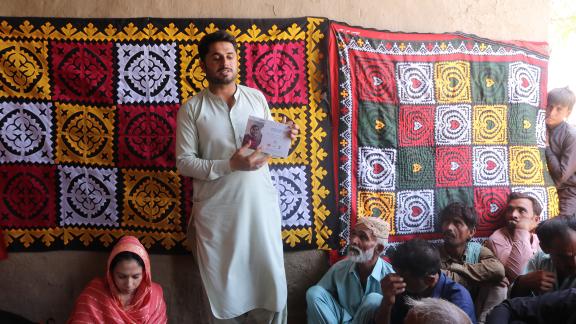
“I envision a future where villages are safe for women and children, but this requires a lot of behaviour change work and coordination with the government. For now, my task is to continue spreading messages of empowerment and women’s protection in villages, which I am proud to do every day.”
In Pakistan, Tahseen is integral to the Protection component of Laar Humanitarian Development Programme’s (LHDP) Flood Recovery project in partnership with Oxfam. This initiative aims to rebuild communities devastated by the catastrophic floods of 2022, which displaced millions and caused extensive damage, particularly in Sindh and Balochistan. Tahseen's work in Qambar Shahdadkot illustrates the profound difficulties of operating in a region plagued by low literacy rates, rigid cultural norms, and political conflict. Despite these challenges, Oxfam’s interventions with LHDP—such as establishing safe water facilities and creating Referral Directories—have significantly strengthened community trust and resilience. Tahseen’s efforts in promoting women’s rights and protection reflect the program’s success and offer hope for continued progress in addressing entrenched issues.
Philippines: Reaching the Most Isolated
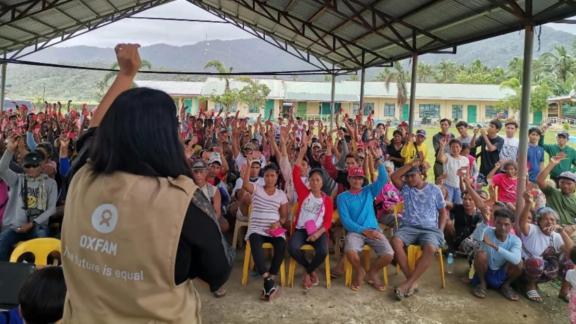
Elsie Cuerdo-Junio, Project Manager for Anticipatory Action at Oxfam Pilipinas, shares the commitment and challenges of reaching remote and often overlooked communities in the Philippines. Her reflections on navigating dangerous and difficult terrain to deliver aid underscore the dedication required to ensure that those most affected by calamities receive the support they need. From perilous boat rides to arduous treks through forests and mountains, the effort to reach isolated communities highlights the importance of personal engagement and tailored assistance. Despite the hardships, the joy and gratitude expressed by these communities reaffirm the vital impact of humanitarian work and the reason behind the sacrifices made.
Vietnam: Empowering Marginalised Communities
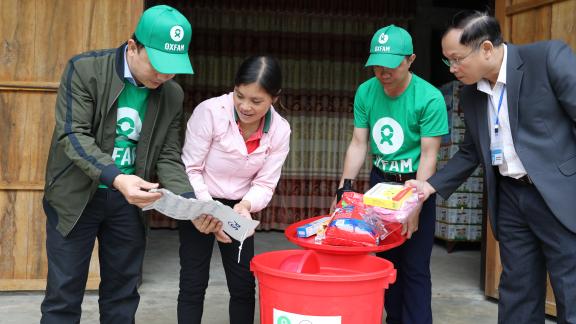
Oxfam’s humanitarian efforts in Vietnam underscore a deeply inclusive approach to disaster response and recovery, particularly in the context of climate-induced challenges. The focus on supporting marginalized women, especially those with disabilities, highlights our commitment to addressing both immediate needs and long-term resilience. By integrating their perspectives into response strategies, Oxfam not only enhances the effectiveness of aid but also fosters sustainable development. This approach recognizes that women facing significant challenges possess valuable skills and insights that drive transformative change. Engaging them ensures that humanitarian responses are more inclusive and effective, ultimately strengthening the entire community.
These reflections not only reveal the diverse and evolving nature of humanitarian challenges in Asia but also celebrate the resilience and innovation driving our efforts.
As we continue to adapt and respond to crises, the experiences of Oxfam's teams provide invaluable lessons on the importance of inclusivity, community engagement, and perseverance in humanitarian work.
